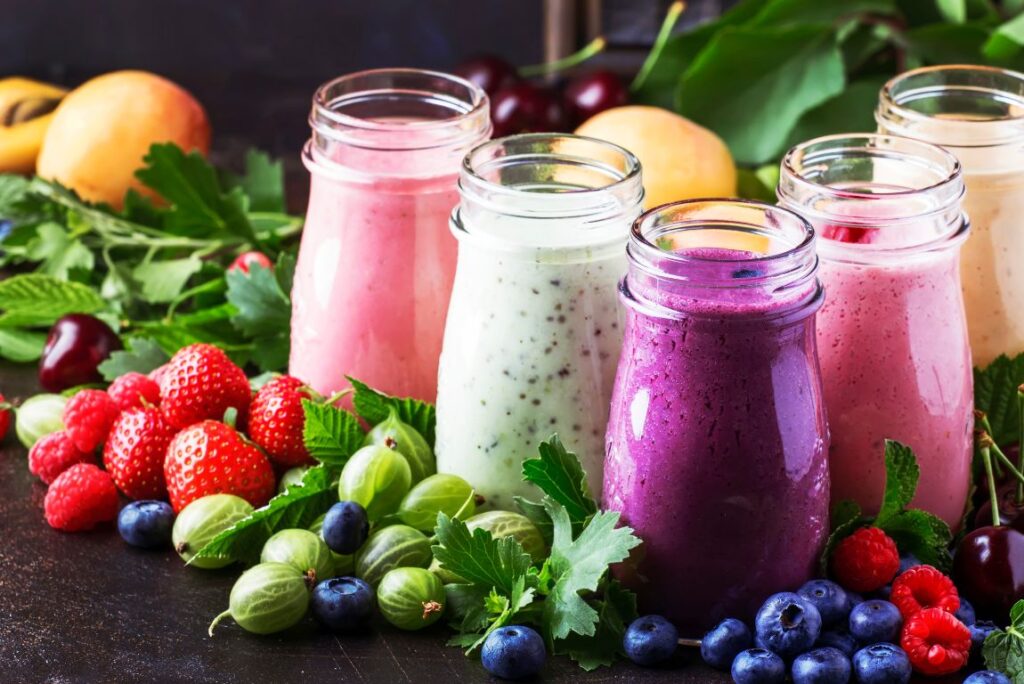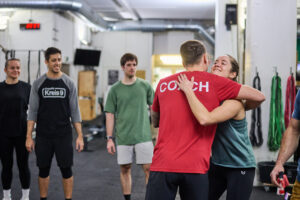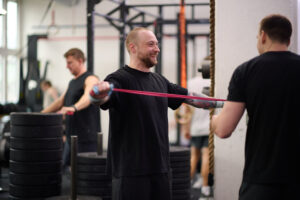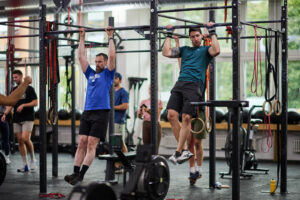
When it comes to what to eat before and after the training, most people assume these meals are the key to progress. The truth? They’re not. What you eat during the rest of the day—and the rest of the week—has a far greater impact on your performance, recovery, and overall health.
This post continues our four-part nutrition series:
If you haven’t read those yet, start there. They explain the foundations that matter far more than any pre- or post-workout meal.
The bigger picture
No amount of pre-workout fuel or post-training shake can fix a poor diet. If your energy balance, food quality, and consistency are off, timing won’t save you. Before worrying about what to eat before and after the training, make sure your daily eating habits are in order.
Think of your body like a savings account—you can’t withdraw what you haven’t deposited. If you’ve under-fueled all day, your workout will feel harder. If you’ve eaten well and consistently, your body already has what it needs to perform and recover—no matter what you eat half an hour before or after.
At CrossFit Kreis 9, we always focus on the basics first:
- Eat real, minimally processed foods.
- Include protein with every meal.
- Add carbohydrates and fats based on your activity level.
- Eat consistently, not reactively.
What to eat before and after the training: pre-workout choices
If your nutrition is generally solid, your pre-workout meal is mostly about comfort and energy. You don’t need anything special—just something light that digests well and won’t sit heavy in your stomach.
If you train within 1–2 hours:
Choose something light with carbs and a bit of protein:
- A banana with yogurt
- A slice of toast with nut butter
- A small bowl of oatmeal with berries
Avoid high-fat, large, or high-fiber meals before training—they slow digestion and can cause discomfort.
If you train early in the morning:
If you’re not hungry, it’s fine to train fasted—provided your overall diet supports recovery later. Some people perform better with a small bite (like a banana), while others prefer an empty stomach. Listen to your body and adjust accordingly.
What to eat after the training
The old idea that you must eat immediately after training—the so-called “anabolic window”—has been largely disproven. If you’ve eaten well during the day, your body already has what it needs. Still, knowing what to eat before and after the training can help you recover faster and feel better if you’re training intensely or often.
If your next meal is soon:
Choose a balanced combination of a protein source such as chicken or fish, a complex carbohydrate source such as brown rice or quinoa, and vegetables. It’s better to prioritize carbohydrates after training and keep fat intake moderate, as fats slow down nutrient absorption.
If you won’t eat for several hours:
Grab something simple that includes both carbs and protein:
- A protein shake with a banana
- Greek yogurt with fruit
- Cottage cheese and crackers
These details only matter once the fundamentals are consistent. You can’t fix poor nutrition in a 30-minute window.
When liquid energy makes sense
Sometimes, liquid energy can be useful—especially if overall food intake or hydration has been insufficient. A sports drink or carbohydrate mix can help maintain energy levels during training in such cases. However, under normal circumstances, a typical training session that lasts no more than 90 minutes does not require additional liquid energy.
If you find yourself relying on it often, it’s usually a sign that your meals earlier in the day—or your hydration habits—need improvement. Liquid calories should be the exception, not the rule.
The fundamentals first
The most effective strategy isn’t obsessing over what to eat before and after the training, but focusing on daily consistency. The big picture—your energy intake, food quality, sleep, and hydration—determines how well you perform and recover.
So before stressing about your pre-workout snack or post-workout shake, revisit the big questions from our nutrition series:
- Why do you eat?
- How much do you eat?
- What kind of foods do you eat most of the time?
- How do you make good habits last?
Master those first, and the smaller details will fall into place naturally.
Summary
When it comes to what to eat before and after the training, the answer is simple: it matters less than you think. Eat real food, eat enough, eat regularly, and stay hydrated. Once you have that consistency, then fine-tune your pre- and post-training meals for performance—but never let them distract you from the habits that truly make a difference.




